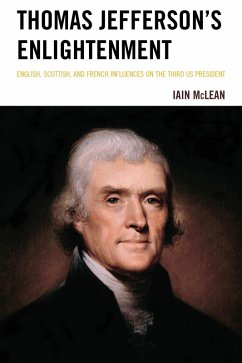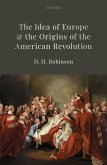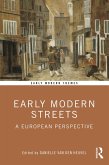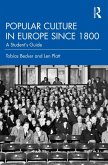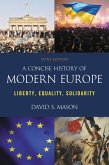Thomas Jefferson's Enlightenment: English, Scottish and French Influences on the Third US President retraces Jefferson's intellectual history. His education in rural Virginia exposed him first to the Latin and Greek classics, then to the political and legal thought of opposition ('country') Whigs from 18th-century England. From his college days, he started to absorb the quite distinct views of the Scottish Enlightenment then the five years he spent in Paris (1784-1789), mostly as American Minister to France, broadened his horizons even more. An enthusiastic amateur scientist, he studied the latest science and liberal politics of his French circle, the most important being the Marquis de Condorcet, whose revolutionary 'social mathematics' was 200 years ahead of its time. The English, Scottish and French perspectives Jefferson was exposed to shaped his thinking in many ways on his return to the US, influencing his own promotion of science as president of the American Philosophical Society and agricultural improver. It shaped his unique views on religion and ethics, up to his very last published letter. However, it failed to eradicate his great blind spot in regard to slavery as the only enslaved people he freed were from his own family.
Bitte wählen Sie Ihr Anliegen aus.
Rechnungen
Retourenschein anfordern
Bestellstatus
Storno

